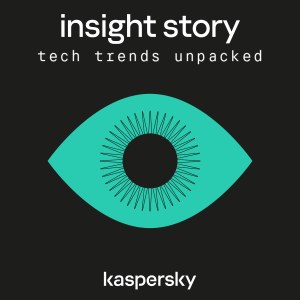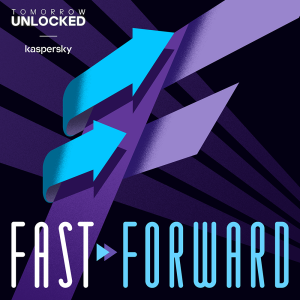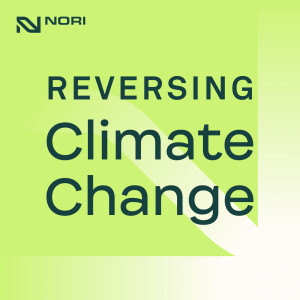
Do you have strong bonds with a faith community or civic organization? How about a book club or sports league? Do you live near your parents? How well do you know your neighbors? In Why Liberalism Failed, Patrick Deneen makes the communitarian argument that liberalism’s failure lies in its success. In the pursuit of individual autonomy, we have alienated ourselves from each other and the environment.
Jeffrey Howard is the Founder and Editor-in-Chief at Erraticus, an online publication focused on human flourishing. On this episode, Jeffrey joins Alexsandra and Ross to discuss the ideas in Deneen’s book and compare how communitarians and liberals see the world.
Jeffrey offers his take on the downside of liberalism’s success, describing our growing isolation and dependence on government interventions or markets—as opposed to each other. Listen in to understand the limits of communitarianism in terms of scale and learn how a communitarian might approach climate change.
N.B. Ross & Jeffrey both regret not discussing the work of John Rawls with regard to contractarianism and as an avenue to criticism of communitarianism.
Key Takeaways
[1:43] How communitarians see the world
Meaning comes from communities (particulars vs. universal) Comfortable with locally driven interventions
[7:54] The three different types of communities
Place Memory Psychology
[10:02] The fundamentals of liberalism
Non-relational beings not beholden to communities See nature as something to conquer + control
[12:47] How liberalism impacts communities
Uncomfortable making demands on one another Leads to alienation, thin community bonds
[19:22] Patrick Deneen’s argument re: the loose relationships of liberalism
Turn to government interventions, market means Takes intention to develop friendships in new place
[28:35] The downside of liberalism’s success
Hollowed out civic and social institutions Associations temper extremes in human nature
[35:01] The consequences of liberalism for individuals
Growing alienation, loneliness (discard if unproductive) Lack of emotional intelligence + general distrust
[37:39] A communitarian take on climate change
Skeptical of commodification of nature Lose something when don’t know where food comes from
[43:20] Jeffrey’s solutions for brain drain in small communities
Advocate for completion of hero’s journey Remote work
[51:15] Jeffrey’s argument against the romanticizing of travel
Carbon footprint Can’t escape problems to ‘find yourself’
[56:21] A communitarian approach to solving climate change
Need thousands of local Green New Deals Unify to build something together vs. top-down approach
[59:31] The best critiques of communitarianism
Too limiting to individual freedoms Give to person most in need (vs. person in community) Local solutions won’t scale quickly enough
Connect with Alexsandra & Ross
Nori
Nori on Facebook
Nori on Twitter
Nori on Medium
Nori on YouTube
Nori on GitHub
Nori Newsletter
Email hello@nori.com
Nori White Paper
Subscribe on iTunes
Carbon Removal Newsroom
Resources
Erraticus
Jeffrey on Twitter
Why Liberalism Failed by Patrick J. Deneen
Books by Wendell Berry
Front Porch Republic
John Stuart Mill’s Harm Principle
David Hume’s ‘Of the Original Contract’
Democracy in America by Alexis de Tocqueville
The Quest for Community: A Study in the Ethics of Order and Freedom by Robert Nisbet
Francis Fukuyama
Bowling Alone: The Collapse and Revival of American Community by Robert D. Putnam
Wendell Berry’s Port William Novels & Stories
How the Bible Actually Works: In Which I Explain How an Ancient, Ambiguous, and Diverse Book Leads Us to Wisdom Rather Than Answers—and Why That’s Great News by Peter Enns
Wendell Berry Farming Program at Sterling College
Enlightenment Now: The Case for Reason, Science, Humanism, and Progress by Steven Pinker
Seattle Salsa Congress
Joseph Campbell
Eat, Pray, Love: One Woman’s Search for Everything Across Italy, India and Indonesia by Elizabeth Gilbert
Charlie Deist’s Green New Deal Article
Blacksheep on RCC EP076
Peter Singer on Effective Altruism
More Episodes
93: Finding Wonder in Waste—with Tony Bova & Jeff Beegle of Mobius
 2019-09-24
2019-09-24
92: How prices and data can communicate climate risk—Sarah Tuneberg of Geospiza
 2019-09-17
2019-09-17
91: Love, Capital, & Regenerative Ag—with Dr. Philip Taylor of Mad Agriculture
 2019-09-10
2019-09-10
90: Restoring Community & Climate Through Place-Based Economics—with Eric Kornacki
 2019-09-03
2019-09-03
89: Bioreactors, deploy! Turning nutrient runoff into fish food—with microTERRA
 2019-08-27
2019-08-27
88: How Slow Money Works...and when not to say "fiduciary"—Woody Tasch
 2019-08-20
2019-08-20
87: The Ends of the World—with Peter Brannen
 2019-08-13
2019-08-13
86: For what shall it profit a congressman to act on climate but lose his seat?—Bob Inglis of republicEn
 2019-08-06
2019-08-06
85: The Gang Learns about Permaculture—with Blacksheep's Joshua Hughes, Sara Czarniecki, & Amanda Wilson
 2019-07-30
2019-07-30
84: Good Biomass, Bad Biomass: Giant Reed Edition—Wendy Owens of Hexas Biomass
 2019-07-23
2019-07-23
83: Thaddeus Russell vs. environmentalism
 2019-07-16
2019-07-16
82: Better Farming Through Data—with Dr. Emma Fuller of Granular
 2019-07-09
2019-07-09
81: The Business of "Waste"—with Lindsey Engh
 2019-07-02
2019-07-02
80: 2020 Presidential candidates and their climate plans—with Zoya Teirstein
 2019-06-25
2019-06-25
79: Biochar or: Using Fire to Cool the Earth—with Albert Bates
 2019-06-18
2019-06-18
78: Turning CO2 waste into a profitable commodity—with Apoorv Sinha of CUT
 2019-06-11
2019-06-11
77: Using Drones to Fast-Track Reforestation—with DroneSeed
 2019-06-04
2019-06-04
76: Innovations in Carbon Beneficial Building Materials—with Chris Magwood & Jacob Deva Racusin
 2019-05-28
2019-05-28
75: A Chicago Lullaby (All About the Green New Deal)—with Rhiana Gunn-Wright
 2019-05-21
2019-05-21
74: A Conservative Approach to Climate Solutions—with Benji Backer
 2019-05-14
2019-05-14
Create your
podcast in
minutes
- Full-featured podcast site
- Unlimited storage and bandwidth
- Comprehensive podcast stats
- Distribute to Apple Podcasts, Spotify, and more
- Make money with your podcast
It is Free
You may also like

Insight Story: Tech Trends Unpacked


Zero-Shot


Fast Forward by Tomorrow Unlocked: Tech past, tech future


Lex Fridman Podcast


Elliot in the Morning


- Privacy Policy
- Cookie Policy
- Terms of Use
- Consent Preferences
- Copyright © 2015-2024 Podbean.com



 iOS
iOS Android
Android